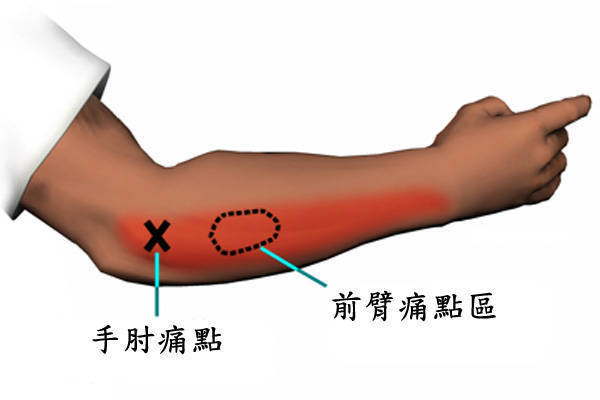掌握这4类否定关系连接词,英语阅读写作so easy!
今天,美国英文学院(American Academy of English,简称AAE)持续为大家分享“否定关系”的英语学习干货,学好这些,能让你的英语阅读和写作更加顺畅和地道,希望这些干货能帮到大家!

1. 表示否定的前缀:
(1)a- 主要加在形容词、动词前,意义相当于not
举例:
①typically (典型地、通常)副词→atypically(非典型性地)
例句:
She was atypically quiet.
她异常安静。
②symmetry (对称性)名词→asymmetry(不对称)
例句:
He added: This asymmetry in exchange rate policies creates a lot of tension.
他补充说:汇率政策上的这种不对称,制造了许多紧张。
③ moral(道德的)形容词→amoral(不道德的)
例句:
He is a person of amoral, with no sense of right or wrong.
他是一个没有道德观念的人,没有是非对错分辨能力。
(2)ab- 加在词根前,表示“相反、变坏、离去”的意思
例如:
① normal(正常的)形容词→ abnormal(反常的)
例句:
They thought his behavior was abnormal.
他们认为他行为反常。
② use(使用)动词→abuse(滥用)
例句:
He showed how the rich and powerful could abuse their position.
他让我们看到有钱有势的人是如何滥用其地位的。
③sent (派遣)动词→absent(缺席)
例句:
He had absented himself from the office for the day.
这一天他没有去办公室上班。

(3)dis- 主要加在名词、形容词、动词之前,表示“无、不”等意义
举例:
①agree(同意)动词→disagree(不同意)
例句:
Ive made this argument, and not a few people would disagree with me.
我提出了此论点,而这会是相当多的人都不同意的。
②advantage (优点)名词→disadvantage(缺点)
例句:
He may be able to nullify that disadvantage by offering a wider variety of produce.
他也许能通过供应更为多样化的农产品来抵消那一劣势。
③honorable (光荣的)形容词→dishonorable(不光彩的、可耻的)
例句:
He received a public censure for his dishonorable behavior.
他因不光彩的行为而受到公众谴责。
④like (喜欢)动词→dislike(不喜欢)
例句:
We dislike those who talk big and do nothing.
我们不喜欢那种夸夸其谈,不干实事的人。
⑤respect (尊重)→disrespect (不尊重;失礼)
例句:
No disrespect intended, sir. It was just a joke.
先生,不要无礼。只是个玩笑。
(4)mis- 加在动词、名词前,表示错误的意义。
举例:
①understand (明白)动词→misunderstand(误解)
例句:
Im not saying what he did was good, dont misunderstand me.
别误会,我并不是说他所做的是好事。
②judge (裁判)动词→misjudge(误判)
例句:
Perhaps I had misjudged him, and he was not so predictable after all
也许我看错了他,毕竟他不是可以让人一眼看透的人。
③fortune (运气、机会)名词→misfortune(不幸、厄运)
例句:
His story is a catalogue of misfortune.
他的经历充满着接二连三的不幸。
(5)il- 加在以l开头的词前,有“无、不、未、非”的意思
举例:
①legal (合法的)形容词→illegal(非法的)
例句:
It’s illegal to drive through a red light.
闯红灯是违法的。
②literate (有文化的)形容词→illiterate(文盲的,无文化的)
例句:
A large percentage of the population is illiterate.
文盲人口占有相当高的比例。
③logical (符合逻辑的)形容词→illogical(不合逻辑的)
例句:
His answer is illogical, and it makes no sense.
他的回答不合逻辑,毫无意义。
(6)ir-加在以r开头的词前,有“无、不、未、非”的意思
举例:
①regular(有规律的)形容词→irregular(不规则的)
例句:
The shirt was on sale because of irregular stitches.
这件衬衫因缝线不规则而减价出售。
②resistible(可抗拒的)形容词→irresistible(不可抵抗的)
例句:
My father’s homemade apple pie is irresistible.
我父亲自制的苹果派是不可抗拒的。
③resolvable(可分解的)形容词→irresolvable(不能分解的,不能解决的)
例句:
The hostname needs to be a resolvable value.
主机名必须是一个可解析值。
(7)im- 加在字母m,b,p之前,有“无、不、未、非”的意思
举例:
①possible (可能的)形容词→impossible(不可能的)
例句:
You shouldnt promise whats impossible.
你不该许诺做不到的事情。
②polite(礼貌的)形容词→impolite(不礼貌的)
例句:
It’s impolite to interrupt a person who is speaking.
打断正在说话的人是不礼貌的。
③measurable(可测量的)形容词→immeasurable(不可测量的)
例句:
I felt an immeasurable love for him
当时我无限深爱他。
(8)in- 加在形容词、名词之前,有“无、不、未、非”的意思
举例:
①correct (正确的)形容词→incorrect(不正确的)
例句:
The time on my clock is incorrect.
我的钟时间不正确。
②ability (有能力)名词→inability(无能、无力)
例句:
Her inability to concentrate could cause an accident.
她无法集中精力可能会导致事故。
③accurate(精确的)形容词→inaccurate(不准确的)
例句:
The book is both inaccurate and exaggerated.
这本书不但不准确,而且夸大其词。
④dependent (依赖的)形容词→independent(不依赖的)
例句:
She would like to be financially independent.
她希望在经济上能够自立。
⑤formal(正式的)形容词→informal(非正式的)
例句:
We can wear jeans to an informal party.
我们可以穿牛仔裤参加非正式的聚会。
(9)non- 加在形容词、名词前,意义相当于not
举例:
①existence (存在)名词→non-existence(不存在)
例句:
I was left with puzzlement as to the existence or non-existence of God.
我对上帝存在与否还是困惑不解。
②essential(必不可少的)形容词→non-essential(不主要的)
例句:
To help provide essential nourishment, weve put together these nutritious drinks.
为了帮助提供必要的营养,我们调配了这些营养饮料。
③electrical(发电的、用电的)→non-electrical(非电的)
例句:
To build non-electrical quantity test system by virtual instrument technique.
利用虚拟仪器技术构建非电量测量系统。
(10)un-加在名词、形容词、副词之前,表示“不、无、未、非”
举例:
①finished (完成了的)形容词→unfinished(未完成的)
例句:
We have some unfinished business to settle.
我们还有些没做完的事要处理。
②employment (就业)名词→unemployment(失业)
例句:
Production has dropped while prices and unemployment have skyrocketed.
物价和失业率猛涨的同时,生产却下降了。
③fair(公平)形容词→unfair(不公平)
例句:
It would be unfair not to let you have a choice.
不让你有选择是不公平的。
④luckily (幸运地)副词→unluckily(不幸地)
例句:
Unluckily for him, the fraud officers were watching this flight too.
对他而言不幸的是,那些反诈骗官员也在密切注视着这个航班。
2. 双重否定:
(1)not fail to 没有失败
例句:
We must not fail to acknowledge his services to the town.
我们不能不感谢他对本镇的贡献。
(2)not illegal 不是非法的
例句:
In many countries, its not illegal to pirate software.
在许多国家盗用软件并不犯法。
(3)not uncommon 并不罕见,屡见不鲜
例句:
Intermarriages were not uncommon.
通婚并不少见。
(4)not unavailable不可用、无法得到
例句:
The most important of life is not lost and unavailable but is having.
人生最重要的不是失去的和得不到的,而是现在所拥有的。
3. 显性否定:
(1)no (副词)不
例句:
- Any problems?
- No, Im OK.
-有问题吗?
-没有,我挺好的。
(2)not (副词)不
例句:
Were not like them. Its different with us.
我们和他们不一样,我们不那么做。
(3)never (副词)从不;绝不
例句:
There were a warmth and passion about him I never knew existed.
他身上有一股我从不知道的热情和激情。
(4)nor (副词/连词)也不
例句:
If he wont go, nor shall I.
他要不去,我也不去。
(5)none (副词)没有
例句:
None of the men had reported for duty.
这些人没有一个到岗位报到。
(6)neither (副词)既不……也不……
例句:
Neither trickery nor coercion is used to secure confessions.
既不诱供也不逼供。

4. 隐形否定:
(1)fail to 未能
例句:
Some schools fail to set any homework.
有些学校没有布置任何作业。
(2)refuse 拒绝
例句:
I refuse to honor your bill.
我拒绝兑现你的票据。
(3)reject 拒绝
例句:
You make friends with people and then make unreasonable demands so that they reject you.
你和别人交朋友,然后向人家提出无理要求,结果被人家拒绝。
(4)lack of 缺少
例句:
I was hampered by a lack of information.
我受到了信息不足的牵累。












